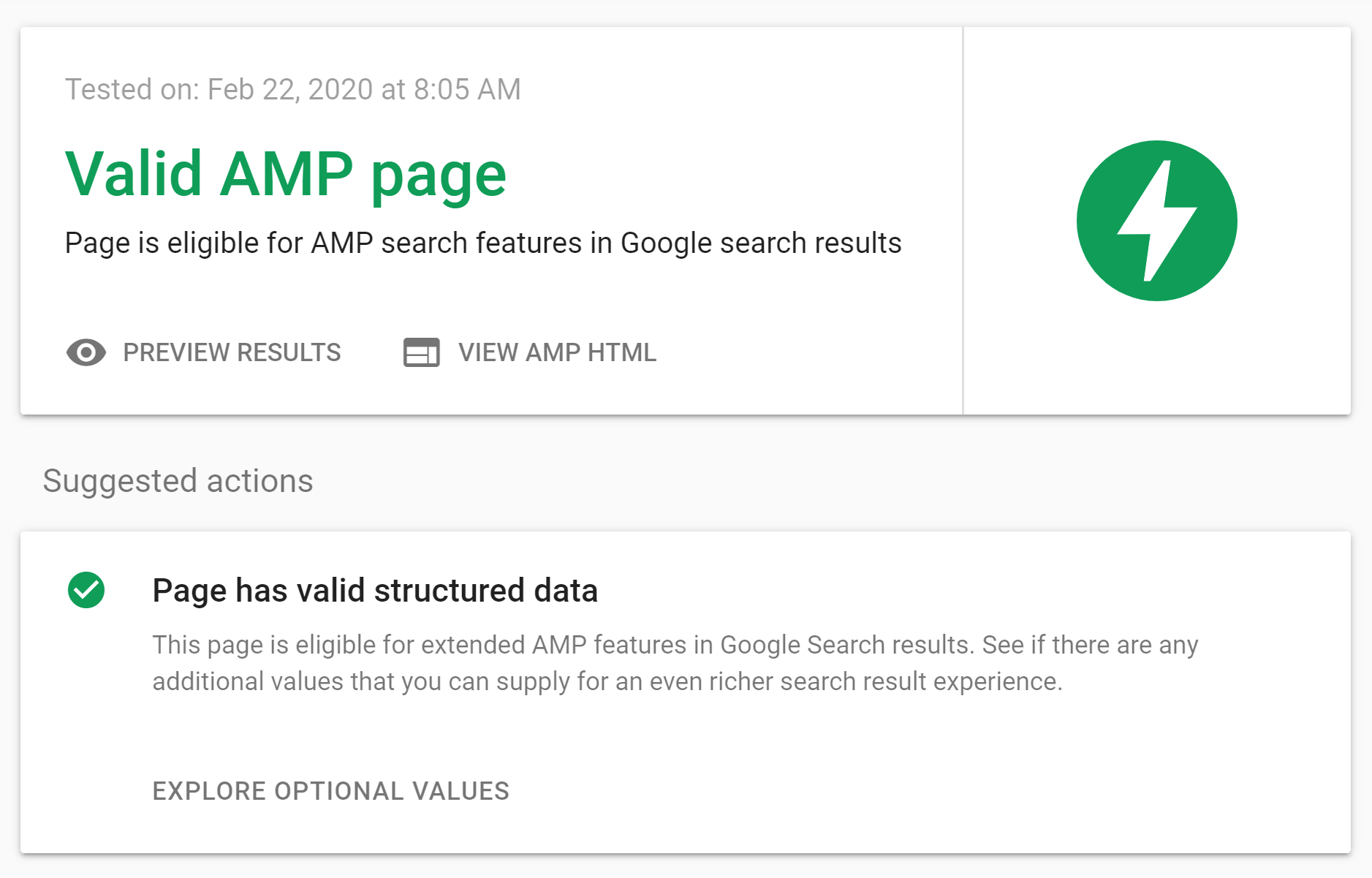Key points
- Shop Sheriff automatically adds rich schema to your AMP pages. This will not conflict with any schema or schema apps on your non-AMP pages.
- For any remaining schema that isn't automatically added, AMP will automatically pull this from your non-AMP schema when displayed in Google search results. This is because we use the proper <link rel="canonical"> and <link rel="amphtml"> meta tags.
- Your meta title and description tags will match your non-AMP page when displayed in Google Search Results.
- The Google Structured Data Testing tool can be safely ignored if testing an AMP link, since the tool doesn't take into account the <link rel="canonical"> tag.
Existing schema on AMP pages
AMP will automatically add rich schema to your pages in compliance with Google's AMP guidelines. This includes schema that is beneficial that you might even be lacking on your non-AMP pages, such as:
- Inventory levels
- Price
- Reviews
- Breadcrumbs
- Article schema
- more...
AMP does this automatically, by default. For product reviews schema, just make sure you have added product reviews stars to your AMP pages, and your reviews schema will be added automatically.
Copying the schema from non-AMP pages
When using AMP, we link your AMP and non-AMP pages with a <link rel="amphtml"> and <link rel="canonical"> tag, respectively, so the Schema information will be the same as your non-AMP page when the AMP pages show up in Google Search Results. By using the proper <link> tags, yourAMP page is effectively given the same schema information as the non-AMP page.
Title and Description tags
The meta title and description tags will sync with your non-AMP pages, so updating it on your non-AMP site will suffice. You may need to wait a few hours for the AMP site to reflect this change, but after a while, it will sync up, and the AMP page will have the same title and description as your non-AMP page.
Copying other Meta Tags from non-AMP pages
When using the proper <link rel="canonical"> and <link rel="amphtml"> tags (As AMP does automatically), your meta <title> and <description> tags will also be the same as your non-AMP pages when the AMP pages appear in Google search results.
When you link a page with <link rel="canonical">, Google knows to use the meta and schema information from the canonical page. This is a standard for Google, and since AMP by Shop Sheriff uses the proper "canonical" linking structure, Google automatically gives your AMP pages the same schema as your non-AMP pages.
But a search result on Google doesn't exactly show the preset meta title or description
This is a feature of Google, and happens extremely frequently no matter which page you're on, and is not a problem with the meta tags on AMP. Rather, it's part of how Google works. Google doesn't always honor meta or schema tags when displaying results. Sometimes Google displays what it considers is the best result for that query. This means you might have a different image, meta title, or meta description on your search result than what you intended to have. To verify that this is not a problem with AMP, feel free to search on Desktop for your products, and if you scroll long enough, you will undoubtedly see products that don't match the exact <meta name="description"> tag on the page.
Rich Article Snippets for AMP Blog Posts
AMP by Shop Sheriff will automatically add the proper schema to your blog posts in order to allow them to show up as "Rich Article Snippets" in Google's mobile app, and on search engines. This is activated for you right out of the box.
You can verify this by inserting your AMP blog URL into the offical AMP Validator here. Your result will look like this:

Using the Google Schema Checker Tool
The Google Schema Checker Tool will be able to validate your rich AMP article schema. Simply enter a blog post URL into the Schema Checker and click validate. However, please note that this tool does not take into account the <link rel="canonical"> tag and therefore this preview tool will not show the previously discussed schema information for things like Products and Collections. This means that this preview tool can be safely ignored when looking at non-blog AMP page generated by Shop Sheriff You do not need to worry about a discrepancy there.
